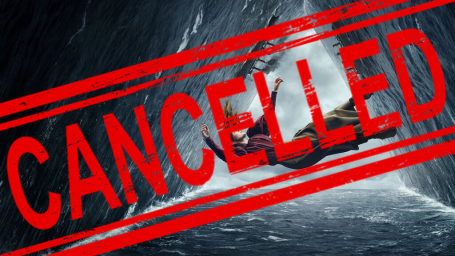
New year, new me. That’s the message it felt like Warner Bros. Discovery was eager to get across at the Realscreen Summit in Austin last week, and perhaps with good reason, as the newly merged company earned itself a reputation for being rather ruthless in 2022, having cancelled many series and frozen commissions to meet an eye-watering cost-cutting target of US$3 billion. During the conference, Kathleen Finch, the company’s Chairman and Chief Content Officer of US networks, stated:
“It’s not how we do business, it’s not a strategy. I’m happy to talk personally with anybody who wants a conversation about it. It was painful, it’s not how we intend to operate moving forwards.”
So WBD is back open for business and, in the wake of what has happened, it’s understandable that the company feels that it needs to provide such reassurance. Finch was speaking from a linear perspective, though the cuts have hugely impacted WBD’s streaming offering too. Something we’ve found particularly interesting about the programming purge is its contrast with the early optimism of the streaming boom, which saw ambitious SVODs including WBD’s own flagship platform HBO Max (set to be combined with its factual streamer discovery+ later this year) invest heavily in original series and promote their rich libraries of archive material.
Sadly, shows now feel less secure than ever on streaming services, which were once considered by many as safe havens for parent company back catalogues as well as buzz-worthy originals, should the latter draw in the necessary viewing figures. HBO Max saw a number of high profile WBD originals – including those made for the streamer and for HBO’s linear network – cancelled, such as major sci-fi series Raised by Wolves and Westworld, and adult animation Batman: Caped Crusader, the latter of which was axed ahead of its 2023 debut. Then there’s the library culling: scores of titles whose back catalogues were readily available on the platform saw themselves pulled away. Even WBD classics like Looney Tunes and The Flintstones haven’t been safe, with multiple seasons pulled from the service just earlier this month. This has left many creators frustrated, particularly those in children’s TV, which has taken a significant hit on HBO Max. Among them is Infinity Train‘s Owen Dennis, who in August wrote a furious blog post in response to the abrupt removal of his series from the platform.

Infinity Train, removed from HBO Max in August 2022
Of course, while HBO Max has taken up many a headline with its cost-cutting measures over the last few months, it is not the only streamer making tough, controversial calls right now. Unlike HBO Max, Netflix was never expected to keep a huge parent company’s back catalogue on-tap. However it has been facing its own backlash for cancelling so many of its original series, often after just a single season. This practice dates back long before 2022, but has been particularly noticeable of late due to angry reactions of subscribers online. Its kids offering also took a big hit last year, as the SVOD drastically scaled back its animation department following its dramatic Q1 loss in subscribers, cancelling numerous projects such as Dino Daycare, Boons and Curses, Meghan Markle’s Pearl, and book adaptations Wings of Fire and Antiracist Baby. More recently the groundbreaking Dead End: Paranormal Park met its demise after two seasons, while – away from children’s TV – the SVOD pulled the plug on The Bastard Son & the Devil Himself, Warrior Nun, 1899, and Fate: The Winx Saga.
Responding to the subsequent backlash, co-CEO Ted Sarandos this month said to Bloomberg: “We have never cancelled a successful show. A lot of these shows were well-intended but talk to a very small audience on a very big budget. The key to it is you have to be able to talk to a small audience on a small budget and a large audience on a large budget. If you do that well, you can do that forever.” Of course, cancellations as a result of underperformance – even of shows that have grown niche but committed and vocal fanbases – are nothing new. It appears Netflix’s axe has become so noticeable because of the sheer amount the platform commissions in its effort to appeal to every audience. There is a lot of programming being thrown at the wall to see what sticks, and as a result a lot that isn’t sticking.
AMC+ too has made headlines this January for a cancellation. Its original adult animation Pantheon was not only axed after one season, but also pulled from the streamer, despite a second season having already been produced. It joins a number of recently cancelled shows from the company, including Moonhaven and 61st Street, which were hit during a round of cost-cutting at the end of 2022.
Undoubtedly, this trend in prominent cancellations and library culling is another symptom of SVODs feeling the squeeze, as well as of course – in WBD’s case – a colossal merger. What will be interesting in the year ahead is what happens to these cancelled projects. Going back to HBO Max’s dropped titles, we’ve already seen the likes of Westworld and FBoy Island licensed to third-party FAST services, while originals dropped by the platform like Beforeigners and The Informant were part of a 150-hour HBO Max programming package acquired by new European streamer SkyShowtime earlier this month. When the dust settles, we can also expect to see how creators across the industry react, and how any trust issues that may have arisen from these turbulent times are addressed.

 James Conibear
James Conibear